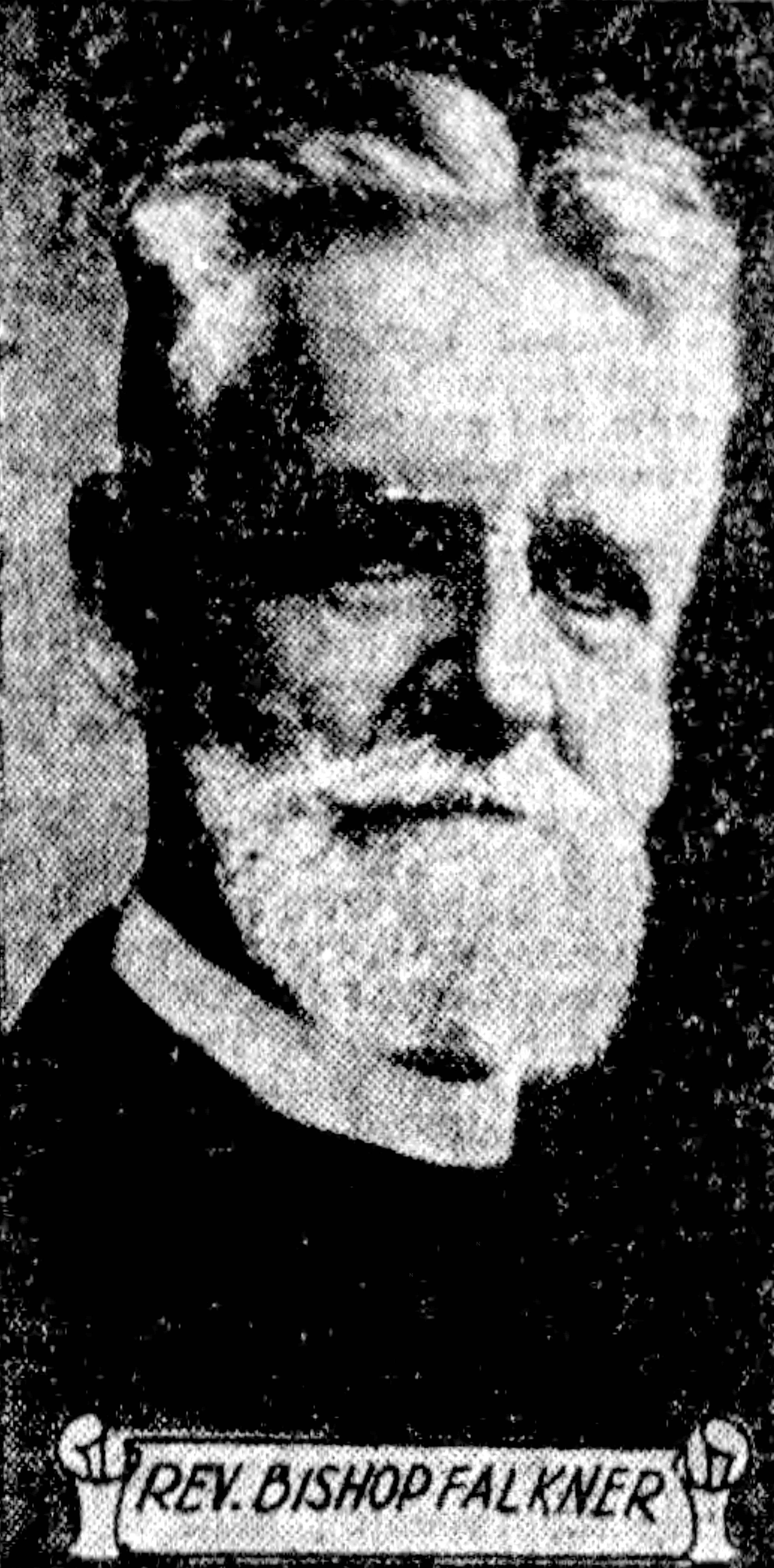The Brooklyn Daily Eagle
Saturday May 14, 1927
Bay Ridge Rector's Memory Skips Back to Sale of Pinky For Dr. Beecher's Pulpit
Sitting at an old-fashioned secretary desk in the comfortable living room of his appartment at 238 75th st. overlooking the Narrows. the Rev. Falkner, 93, rector emeritus of Christ Church, Bay Ridge, today skipped back 67 years In his mind and recalled the day "Pinky," the famous slave child, was sold from Henry Ward Beecher's pulpit.
Vividly does the distinguished rector remember that Sunday morning in the winter of 1860, when the slave child was sold-—only he will not permit it to be called an auction. "Mr. Beecher would never have turned his pulpit an auction block," said the Rev. Falkner.

Rev. Bishop Falkner
"I happened to have been there and in way was responsible for what happened. So I should like to get this matter straight."
Hardly Looks 80.
The Rev. Mr. Falkner is an amazingly active person for his years. He hardly looks 8O, so tall and straight is he. His white hair is so thick, that he admits lots of younger men envy him it. His voice is firm and deep. His memory is virtually perfect.
It was in the Falkner home on Pacific st. that little "Pinky" stayed during her brief visit to Brooklyn. It was the Rev. John Falkner his brother, who sent "Pinky" to Henry Ward Beecher. It was the Rev. Bishop Falkner himself who took "Pinky" to thr artist, Eastmond Johnson, to have her portrait painted.
"Well do I remember it," he smiled. "The child had whooping cough and would would always get a spell half-way to the studio. I'll never forget it."
In his deep spiritual voice the Rev. Mr. Falkner described the "Pinky" incident this way:
"In 1860 my brother John &mdasj;he is dead now— was a student at Alexandria Theological Seminary in the South. He met "Pinky's" grandmother in a boarding house where she was cook. She interested him in her grandchild, who was in the slave pen and was about to be sold. The grandmother thought perhaps Henry Ward Beecher, who was at that time preaching against slavery, could do something for the child. My brother wrote to Beecher and he said to bring tho child on. My brother put up the bond for the return of the girl. At that tlme no slave could come north without a bond being posted."
Stayed at Falkner Home.
When the slave child arrived in Brooklyn with her grandmother stayed at the Falkner home on Pacific st.
"My sister dressed Pink —that was her stave name— to take her to church," continued Mr. Falkner. "She was a lovely child, with bright pink cheeks and long brown curls. She looked more Spanish than colored. I took her to church that morning. Mr. Beecher based his sermon on slavery. Pink stood at his side in the pulpit and when he finished he asked: 'Are you going to send this child back to slavery?" The congregation responded nobly and more than the necessary money was raised. The stories about jewelry thrown In the basket are exaggerated. The only jewelry was a ring from Rose Terry, the poetess."
After her freedom was bought, Pink, or Rose Ward as she was then called, stayed at the Falkner home for while. A position was found for the old grandmother as cook in a wealthy home In Brooklyn.
Grandmother Dislikes North.
"But the grandmother did not like the North and wanted to return to her native Southland," Mr. Falkner went on. "She went back after few months and brought Pink with her. We lose track of them after that.
While the slave child was with the Falkners, Theodore Tilton, an old Brooklynite, suggested her portrait be painted.
I took her over to Eastmond Johnson's studio," Mr. Falkner continued. I remember very distinctly that my sister had dressed the child in a little red dress, with horizontal stripes running around the skirt. The artist thought the clothes were most inartistic. For later poses my sister knitted a little pink jacket, which the child wore and which can be Plainly seen in the picture."
Mr. Falkner has written a letter to the Rev. Dr. J. Stanley Durkeee", pastor of Plymouth Church, where "Pinky" —now Mrs. James Hunt— is to return on Sunday after 67 years, explaining the Falkner connection with the matter.
Mr. Falkner does not expect to attend the Plymouth Church services.
"I consider myself fortunate when I am able to go around the corner to my own church," he smiled.
At Christ Church, Ridge blvd. and 74th st. Mr. Falkncr, each Sunday when he is well, takes part in the service.
"I am still able to give the benediction at the end of the service," he said.